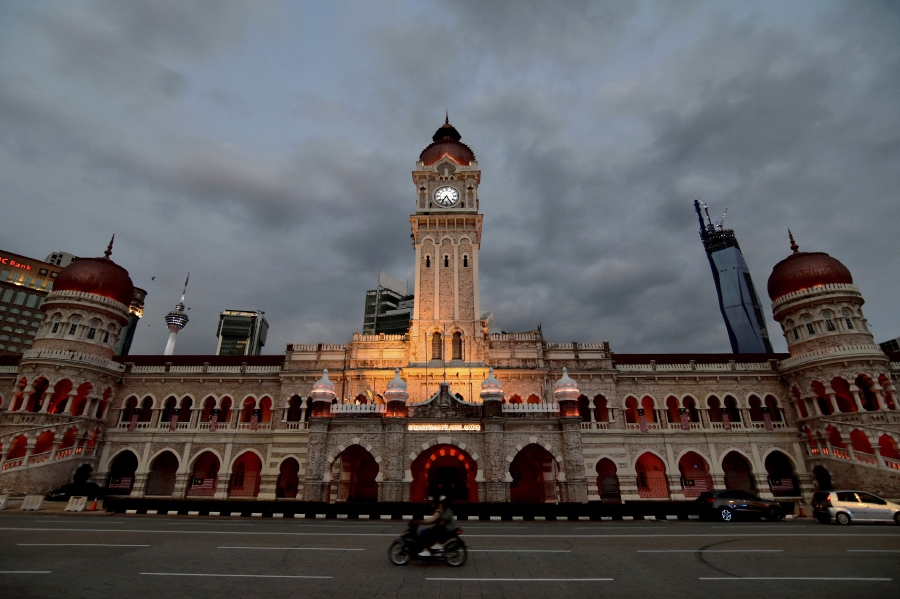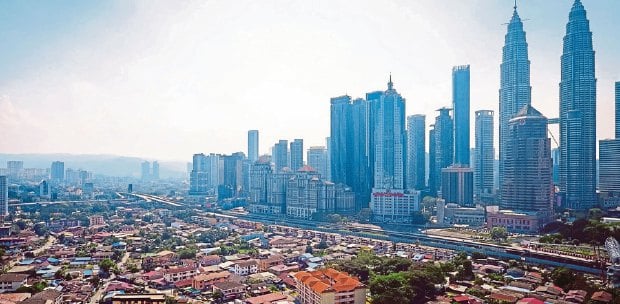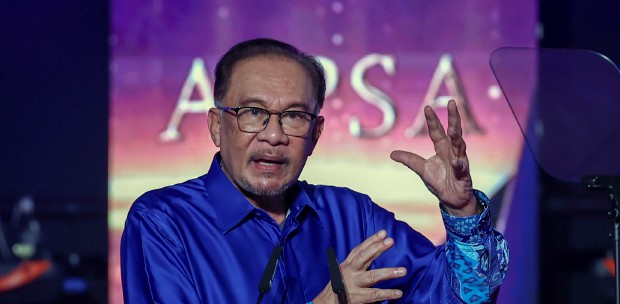DEMOCRACY as a system of governance has become a fixture throughout the world.
In Malaysia, due to our status as a former protectorate of Britain, we have inherited from the British, the Westminster-style of government as reflected in our Federal Constitution which divides the same into the executive, legislative and judicial branches, with each acting independently and as a check and balance.
Malaysia has maintained a stable policy throughout the decades since independence in 1957. Our experience in this regard is not dissimilar to our neighbour down south — Singapore.
The republic also had a constitution that is not strict with the doctrine of separation of powers, enabling a virtual one-party state. Yet, it is this precise characteristic that enabled Singapore to prosper and become the economic juggernaut that it is today.
Other Asean member states such as Indonesia, Thailand, the Philippines, Vietnam and Burma, now known as Myanmar, have had periods of non-democratic rule before transforming into democracies.
Myanmar's transition is of special note. Having been ruled as part of India under the British Raj, it finally gained its independence in 1948 after a long campaign, led by Aung San. It became a military dictatorship in 1962 following a coup.
Yet, while Myanmar has improved by leaps and bounds in the adoption and practice of democratic principles, it has to do more to achieve peace, which is necessary to ensure that Myanmar can build on its new status as a democracy and thrive thereon.
Democracy, while desirable, in itself cannot ensure a prosperous and free society, for democracy always translates as rule of the majority.
This leaves no room for the rights and interests of minorities. This is not an ideal state of affairs, in particular in societies where such minorities exist.
As Myanmar has democratised, it is unfortunate that, as far as the Muslim Rohingya community is concerned, previous pockets of intolerance manifested towards them by the Burmese majority has erupted into full-scale discrimination which snowballed into violence.
The rights and dignity of the Rohingya are so much trampled upon by the Burmese state that their situation now is not unlike that of the Jews who faced internment at the Nazi extermination camp in Auschwitz, Poland in the 1940s.
They are called illegal immigrants in Rakhine, stripped of their right to a nationality in 1982 and told to leave for Bangladesh, although they have settled in areas they now inhabit for centuries prior and just happen to be on the wrong side of the border, separating India and Myanmar drawn up by the former colonial power, Britain.
This situation is compounded by rhetoric by Buddhist leaders of the Burmese majority in Myanmar who advocate concepts such as the need to keep Rakhine state free of Muslim influence.
The Myanmar authorities must stop the persecution of Rohingya in Myanmar, restore their citizenship, and do all such acts necessary to compensate their loss.
Rohingya Muslims must also be guaranteed the right to practise their faith freely. Only then the rights and dignity of Myanmar's religious Muslim minority, the Rohingya, can be preserved and peace will prevail alongside democracy and ensure the prosperity of Myanmar.
Democracy is important and a welcome method of governance for it enables the citizenry to have a say in the manner they wish to be governed.
This is in contrast with other forms of governance that are tyrannical and do not benefit the people. But, this democracy must be tempered with safeguarding of the rights of the minority population. Otherwise, they would be oppressed by the actions of the majority.
The Global Partnership for Sustainable Development is conceived to ensure a successful sustainable development agenda, relying on partnerships between governments, the private sector and civil society.
Subhadra, [15/4/2023 12:33 PM]
These inclusive partnerships, it is hoped, will build upon principles and values shared by these various sectors and involve a shared vision, and shared goals that place the citizenry and Earth at the centre. This must be realised at the global, regional, national and local levels.
Such partnerships must be multi-faceted and encompass four broad themes, namely finance, technology, capacity-building and trade.
Financially, the goal is to improve a nation's domestic capacity for tax and other revenue collection by strengthening resource mobilisation, mobilisation of additional resources from multiple sources, and for the poorer among us, the adoption and implementation of investment promotion regimes.
Debt restructuring and debt release are crucial in ensuring that developing countries, in particular, attain long-term debt sustainability through coordinated policies via debt financing, debt relief and debt restructuring, as appropriate, and addressing the external debt of highly indebted poor countries to reduce debt distress.
We are all too mindful of the situation Greece, for example, finds itself in with respect to its debts, and are anxious to avoid a similar predicament befalling our own respective economies.
On the technological front, we must enhance North-South, South-South and triangular regional and international cooperation on and access to science, technology and innovation and enhance knowledge sharing on mutually agreed terms, including through improved coordination among existing mechanisms.
Last but not least, we must enhance trade by a universal, rules-based, open, non-discriminatory and equitable multilateral trading system under the World Trade Organisation (WTO).
There exists a pressing need to assist developing countries by significantly increasing their exports, in particular with a view to doubling the least developed countries' share of global exports by the year 2020.
Timely implementation of duty-free and quota-free market access on a lasting basis for all least developed countries, consistent with WTO decisions, including by ensuring that preferential rules of origin applicable to imports from least developed countries are transparent and simple, and contribute to facilitating market access is also paramount.
What are the steps we have taken nationally and regionally to ensure that the Global and Partnership for Sustainable Development have been adequately implemented towards realising the SDG goals?
The government sets out national development plans consistently spanning a five-year period at a time as game-changers. These are unlocking the potential of productivity, translating innovation into wealth, increasing the percentage of the middle class, mainstreaming technical and vocational education and training, embarking on green growth and investing in competitive cities.
While Malaysia and Asean are moving along well on enhancing trade and developing infrastructure, there still remains a lacuna as far as policy on building on technological advancement and structuring finance are concerned.
In summary, nations with technological prowess must play their part to assist and augment international support in implementing effective and targeted capacity-building to developing nations in implementing all the sustainable development goals.
The writer is Chief Executive Officer of Institut Masa Depan Malaysia, a Kuala Lumpur-based think-tank that brings together experts in government and academia to provide quality research, policy recommendations and analyses on a wide range of public policy issues, guided by shared prosperity values





